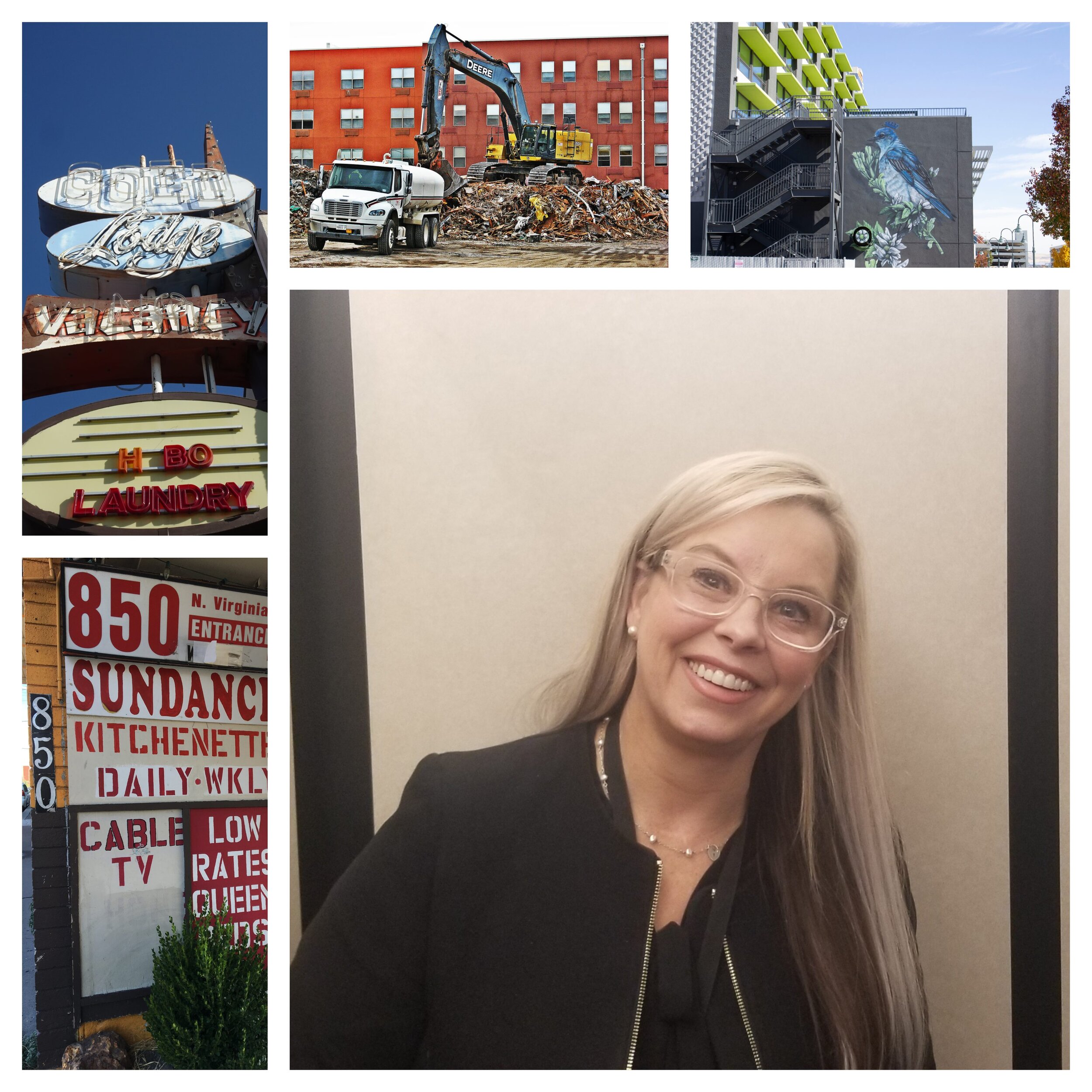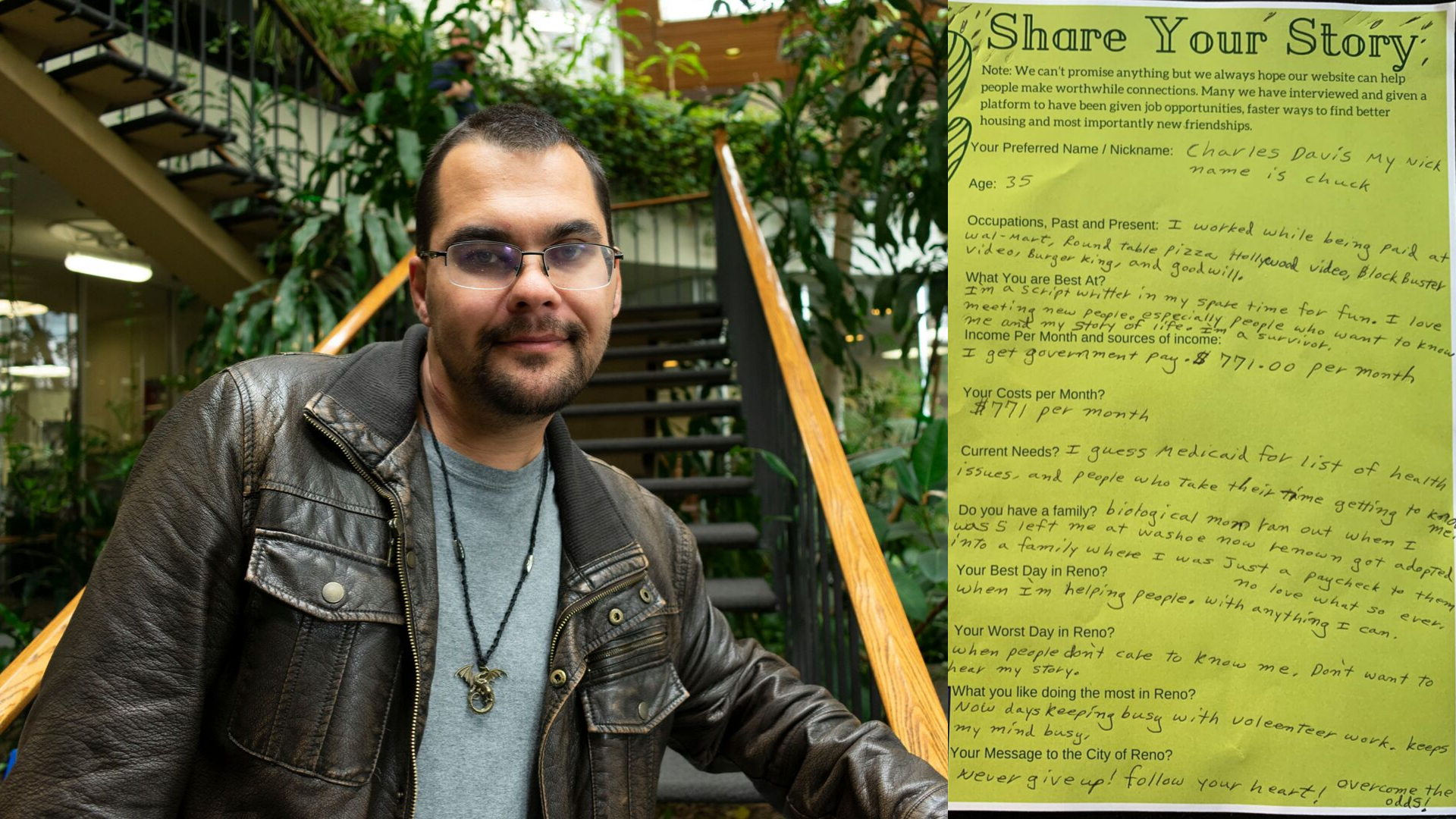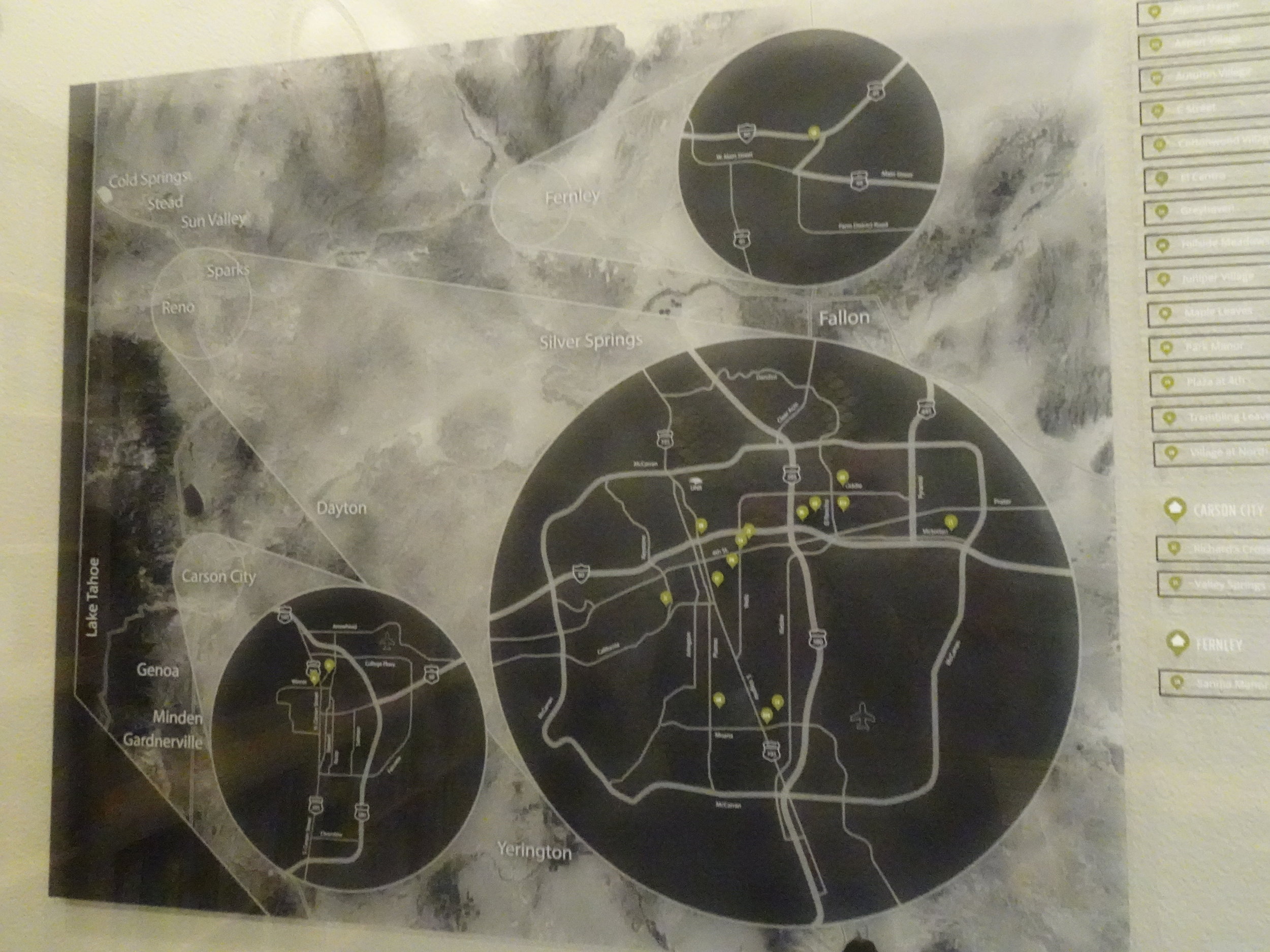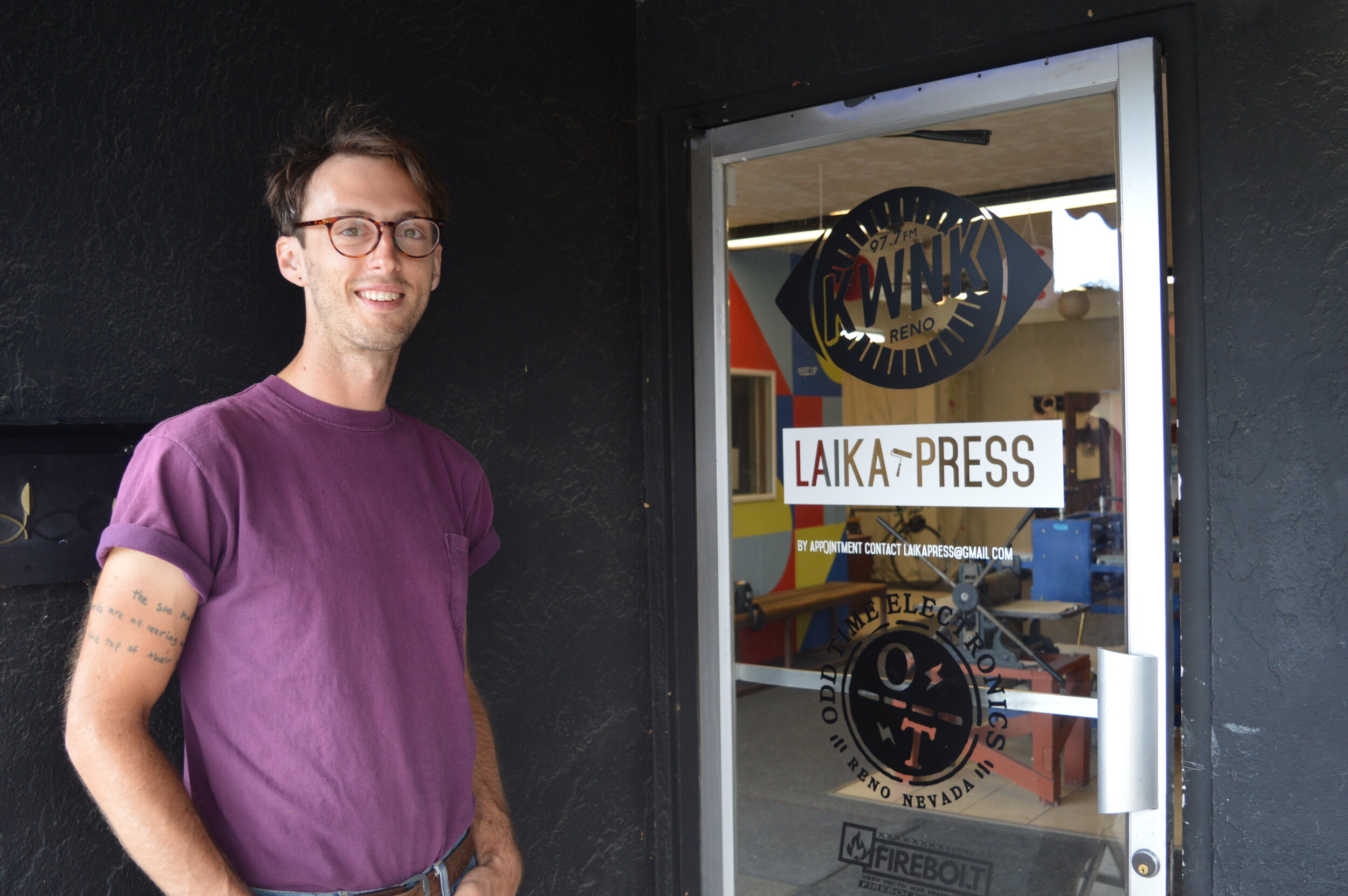Homeless While a Mother
"I became homeless and I couldn't work anymore because it was the summertime," Melissa said during a recent Share Your Story Our Town Reno event at the downtown Reno library. "The kids were out of school and I didn't have anyone to watch them and I just want to put my story out there, just because I'm homeless doesn't mean I'm any different from anybody else."
The biggest challenge for Melissa in finding a new job, she told us, is finding one that has working hours that will cater to her family needs. A mother of four, Melissa and her kids have been staying at a local homeless shelter for the past month. Every morning, Melissa has to get her children on the school bus and to pick them up in the afternoons because they can't go into the shelter by themselves.
"It's hard finding a job here in Reno that meets the demands I need to take care of my children," Melissa said. "So it's hard meeting those demands and every job that I apply for always wants nights. [I understand] you always start at the bottom of the totem pole but I just can't do that."
Separated at the Shelter
Melissa says she is desperately seeking new housing for her family, but is stressed by the lack of availability of affordable housing in Reno. She says she just doesn't want her children to have to grow up in the homeless-shelter environment.
"I'm by myself with my kids inside the shelter," Melissa said. "There's a lot of people, there's a lot of fighting, swearing, and other stuff going on around the shelter I would really rather my kids not be around."
Consequently, Melissa does everything she can to keep her family together through this difficult time. However, it's been difficult due to her husband Michael not being allowed in the same shelter as her and their children. Currently, he's been staying at an overflow shelter, but early on they didn't know where he was staying and it caused them to worry for his safety.
"At first, we didn't [know where he was staying] because he was sleeping on the streets," Melissa said. "My three girls are 'Daddy's girls,' and so not having him around they worry about where he's at and if he's okay. I think we all worry about him until we see him the next day and know he's okay."
Melissa has her children see their dad every chance they get, even if it means taking them to his shelter to simply say 'Good night.' She says people have harassed her for bringing her children around the shelter to see him, but she just wants her family to be together.
"I just don't want anyone trying to force us to be apart from each other," Melissa said. "It hurts him more than anything when somebody confronts us and tells us we can't have the kids over here. [But the children] just want to see their dad. We'd all rather live on the streets in the gutter, together, then separated."
Feeling Judged
Melissa finds strength in keeping her family together, but sometimes she says she feels that people judge her for having her children with her on the street and in the shelter.
"I think people look at us and say 'How can these people be homeless with these kids and put these kids through the mud.' But it's not like that at all, no one knows that the situation was out of our control. It's just unfortunate," she said.
In the meantime, Melissa says she would like to see more resources available to the homeless population in Reno. Particularly, she said she'd like to see the soup kitchen open more often and to feed dinner, even on Sundays.
"I have food stamps but I have a microwave to cook with," Melissa said. "We're not getting enough protein that we should be getting. Protein puts a lot of strength in us and we don't get a lot of that because of what I can and cannot cook. So I think they should open the soup kitchen every day. There's a lot of hungry people out there."
Wanting More and Better Services
Melissa doesn't believe the city council or other government officials are doing enough to address homelessness. She acknowledges that building new bridges, making wider roads, and expanding the bus system is good for the city, but she believes it comes at the expense of the people truly suffering.
"They can put that money [for bridges and roads] towards a big shelter for people so they don't have to be out in the cold. The weather is about to change and start snowing and all these people have nowhere to go out in the snow."
Melissa doesn't believe programs like the Downtown Reno Ambassadors are helping much. She says she’s been told by Ambassadors that she can't even lay down when she takes her kids to a park. She isn't trying to sleep, she says, she just wants to relieve her back from sitting up and standing all day. Melissa thinks that if government officials really cared and wanted to help, they should come out and experience homelessness for themselves.
"I don't think anyone would really understand unless they came down and experienced themselves. If they just come down and talk to people and other people who are experiencing it worse than I am, or even those who don't have families or lost their families and are by themselves. I can't speak for other people but I think that if people knew what was going on they would help a lot more."
Wanting to Give Back
If she is able to find a home and get back on her feet, Melissa says she intends to give back to the community.
“We've even told ourselves that when we get our own place and back on our feet we're going to come back and help the homeless," she saud said. "[Whether that's by] making sandwiches or serving dinner because so many people have put their hearts out there serving dinner for us.”
Although she regrets her children having to go through this homeless experience, Melissa believes her children have learned a lot during this time.
"They want to help [give back] because they see the people that have helped us," Melissa said. "So I just try to keep their spirits up. I hate myself for doing this to them but I know they love me, they love their dad, and we all love each other and that's what makes us go on every day and keep doing what we're doing. All we ever want is to be together."
New Hope for a ReStart
Recently, Melissa says she was selected as a candidate for a ReStart Reno housing program. Meanwhile, she and Michael are continuing their search for jobs, saying they are willing to work two or three jobs just to make things work for their family and put a roof over their heads.
"My kids are my motivation always and after what we've gone through, they know that Mom and Dad will always make it right," Melissa said. "It might take a little longer, but we're always going to do everything we can."
Reporting and Photography by Scott King for Our Town Reno












































![“People have to be able to have a place to sleep,” Reese said of one of his priorities for his campaign. “I'm interested in exploring things like, the idea of a community-based camping ground. [It can be] a space where people can be safe, where they…](https://images.squarespace-cdn.com/content/v1/5675d221cbced60a236e28b8/1571428907049-O93TEM7B1HWG1KUFCX0T/72724598_2102277536735020_3871048539211563008_n.jpg)












![Benjamin remains confident in keeping printmaking relevant, as he says it’s an art form unlike any of the others. “[Printmaking] is an interesting thing because it’s in between having an original item that you produce and having multiples,” Benjamin…](https://images.squarespace-cdn.com/content/v1/5675d221cbced60a236e28b8/1569553478605-OTELRZZO0H4AXXUX7IZI/Press+3.JPG)











